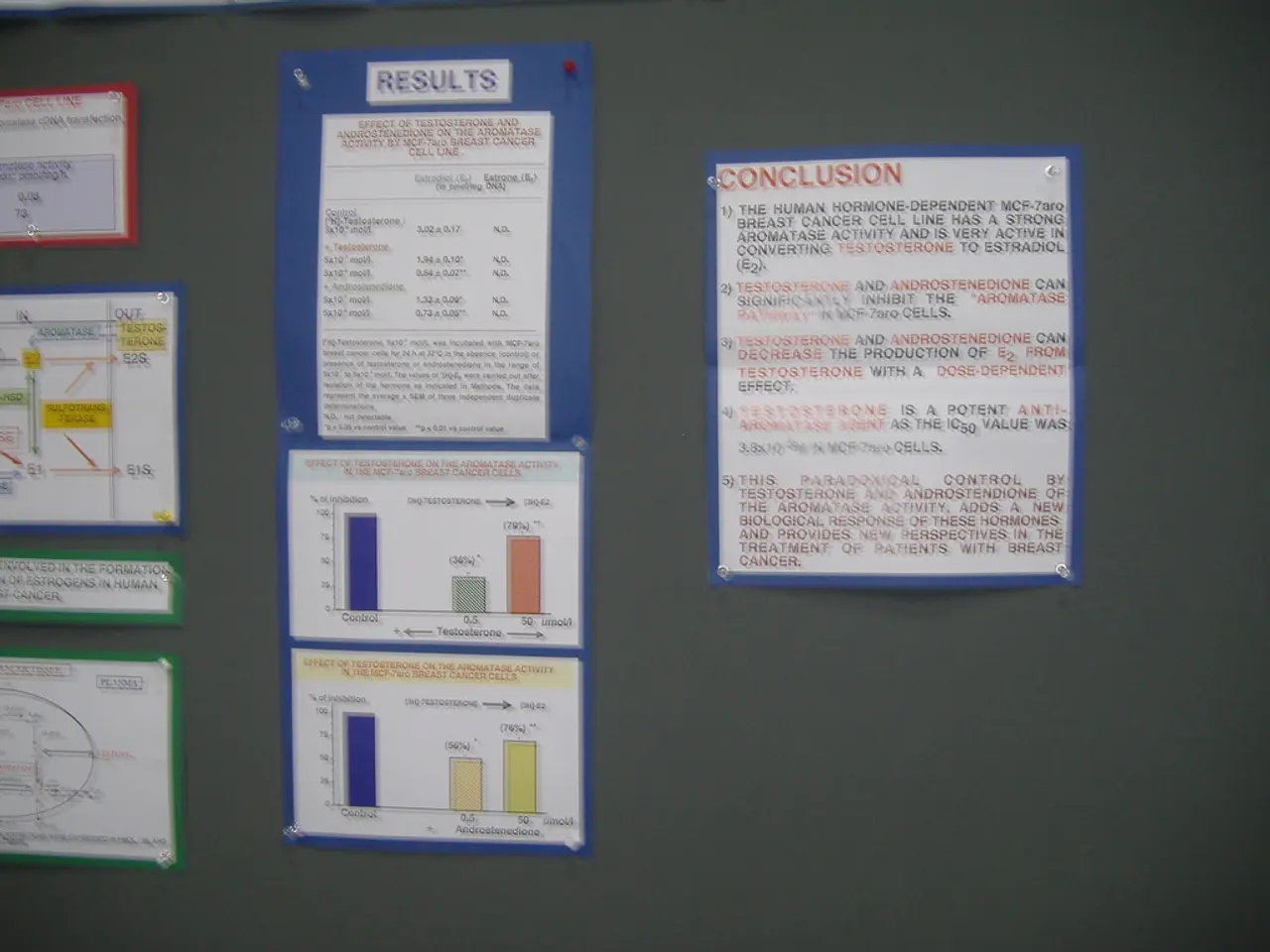Energy Shift: Century-Marking Surprise for Merz in Transition Energy Sector - Shift in Energy Sources: Merz Experiences Electrical Disruption
In early July 2025, the ongoing dispute over the reduction of the electricity tax in the German government coalition, led by Chancellor Friedrich Merz, remains unresolved. The coalition, comprising the CDU/CSU and SPD, has failed to reach an agreement on extending the tax cut beyond the industrial, agricultural, and forestry sectors to all businesses and private consumers.
The initial promise of a tax reduction for all consumers was made in April with the presentation of the coalition agreement. However, the cabinet has since opted for a selective approach due to budget constraints, rejecting a broader tax relief as initially promised.
This decision has sparked significant controversy and criticism. SPD representatives, such as Alexander Schweitzer, have accused the CDU of undermining prior government decisions by questioning the targeted nature of the tax reduction. On the other hand, CDU members like General Secretary Carsten Linnemann have argued for a broader cut to benefit all consumers, including private households. The Finance Ministry has cited fiscal limitations, estimating that a universal reduction would cost around EUR 5.4 billion in the next year—funds that would require cuts to other government projects.
The selective approach has raised concerns about market distortions and lack of fairness among businesses and voters. Industry groups and trade associations criticise the government for excluding many companies and households from the relief measures. Political analysts warn that this discord threatens the coalition’s stability and risks alienating the electorate, especially since tax relief on electricity was a key campaign pledge for the Union party.
Chancellor Merz's leadership is also under scrutiny amid other controversies, including his comments on social issues, which have drawn backlash and further complicated the coalition’s public image.
The future implications of this dispute include potential strain within the coalition, difficulties in maintaining voter confidence, and challenges in balancing fiscal responsibility with social and economic support policies. The coalition may need to revisit budget priorities or seek compromises to achieve a broader electricity tax reduction in the future. However, for now, the current policy favours selective relief aligned with budgetary constraints.
Meanwhile, the question of whether the expansion of the power grid, wind and solar energy, and alternative storage technologies such as large batteries and hydrogen is really sensible and economically viable remains unresolved. The new government is considering reducing or extending the ambitious expansion targets for networks, power plants, and especially wind and solar power of its predecessors. The most exciting question in the battle for electricity prices is how the government and the Union position themselves regarding the new energy mix.
In the long run, wind and solar power are the cheapest available energy sources compared to gas and new nuclear power plants. However, building networks, reserve power plants, and power storage systems for the new energy mix is costly in the current transition phase. The new Minister of Economics, Katherina Reiche, has specialist knowledge but no power base in the faction.
The dispute over the electricity tax reduction has raised concerns about its potential impact on the government coalition. The personal and venomous nature of the dispute has further fuelled these concerns, with some fearing it may lead to further instability within the coalition. Chancellor Merz will now have to watch his faction leader, Jens Spahn, even more closely.
This article was first published in [Publication's Name], debating the energy policy of the new federal government and its promise to lower electricity prices for companies and consumers. The first draft of the federal budget 2025 was a surprise as the promised tax reduction for all was suddenly missing. Reiche, the new Minister of Economics, is planning for tight budgets and enormous debt in the coming years, and is considering possibly doubling the number of gas power plants planned by the old government in the coming years.
Sources: [1], [2], [3], [4]
- The ongoing electricity tax dispute within the German government coalition, led by Chancellor Friedrich Merz, has extended to the discussion of community and employment policies, as businesses and private consumers question the selective nature of the tax relief.
- The controversy surrounding the selective electricity tax reduction policy has sparked debates in various industries, with finance, energy, and business sectors expressing concerns about the potential impact of the policy on their respective sectors and the overall economy.




